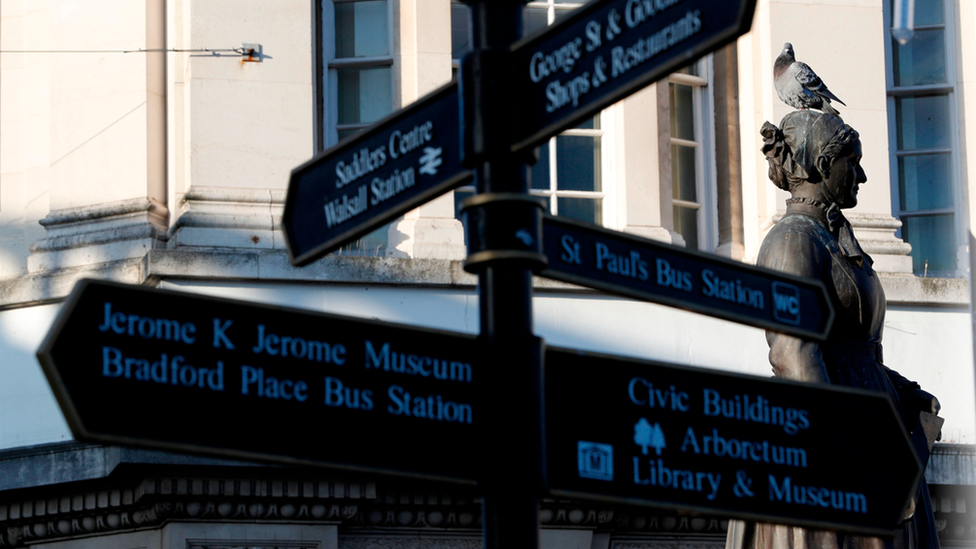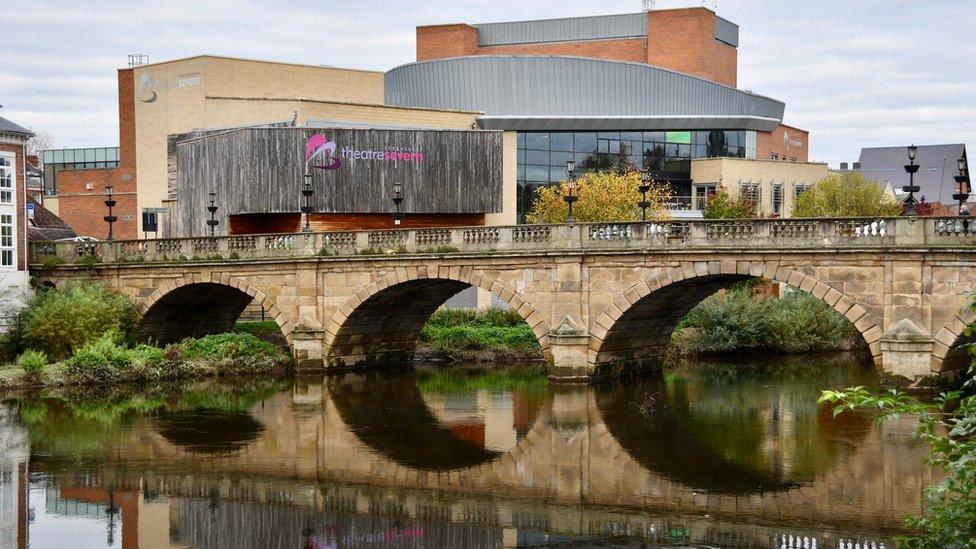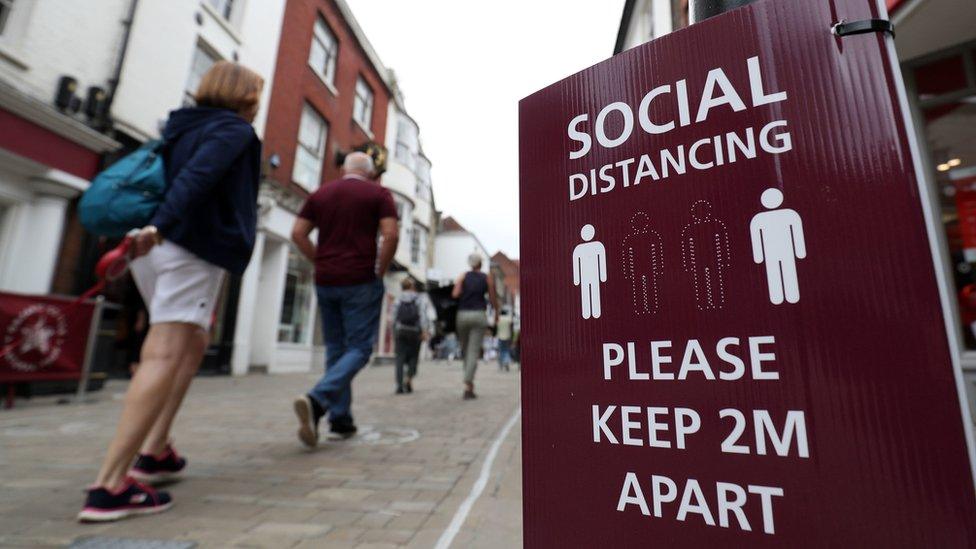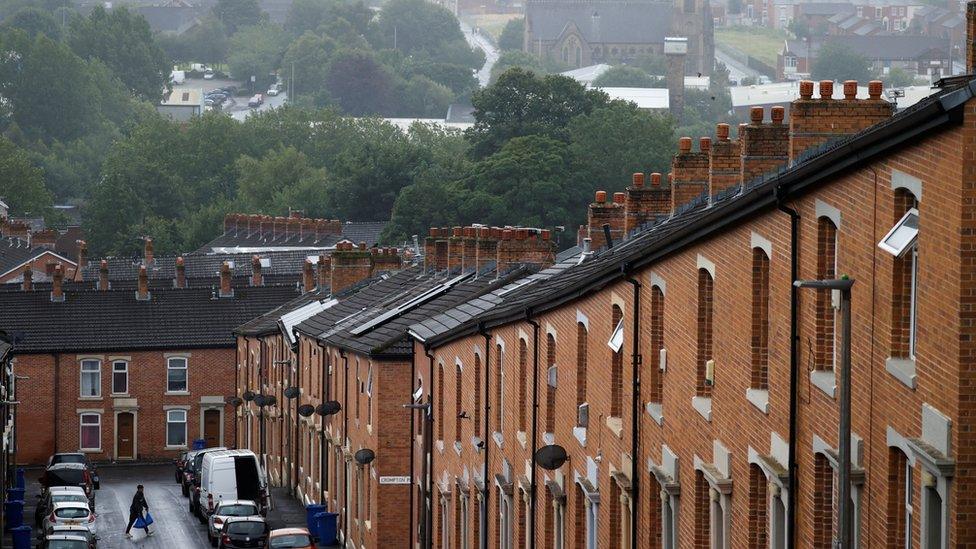Walsall Council to cut budget by 22% due to 'increased challenges'
- Published

Walsall Council said it would look to government for more funds to support the economic recovery in the wake of the pandemic
A council in the West Midlands plans to make £29m of savings, the equivalent of a fifth of its annual revenue budget - the highest proportion in the UK.
Walsall Council said it was facing "greatly increased challenges".
It will cut £13.55m from adult social care, but said front-line services would be protected.
Analysing 170 upper-tier and single-tier councils in the UK the BBC Shared Data Unit found they plan to make £1.71bn savings in 2021-22.
Walsall Council's savings target amounts to nearly 22% of its revenue budget.
But Council leader Mike Bird said his authority was in a "strong financial position with an ambitious transformation agenda".
Revenue budgets include money from central government and set out how day-to-day expenditure - but not large capital projects - will be funded.
The Conservative-run authority said its savings of £28.9m amounted to less than 4.4% of the council's gross revenue budget, which also includes charges and specific grants for some services.
Like other councils across the country, the administration has raised council tax by 4.99% in order to help meet costs and has received more than £65.89m extra funding from government during the pandemic.
It also said using "assistive technology" was expected to help reduce demand on social care.

Despite making the cuts, local authorities across the UK predict a £3bn shortfall in their budgets by 2023-24, with Shropshire Council expecting one of the largest funding gaps.
It faces tough choices in the years ahead as it will need to find more than £48m to balance its budget.
Facilities such as council-owned leisure centres and museums were closed for the majority of the financial year, while town centre parking revenue virtually ceased.
The coronavirus response has also cost it £11m extra in additional help in areas like homelessness support and looking after the elderly and the young.
But Conservative council leader Lezley Picton said rather than looking at the cuts, investments could be the key to financial recovery.

Analysis: Joanne Gallacher, Political Reporter, BBC Radio Shropshire

Like other arts organisations, Theatre Severn has been badly affected by the pandemic and received more than £500k in April from the government's Cultural Recovery Fund
This is no dress rehearsal for Lezley Picton - she's been in charge for less than two months.
With the savings to make - where does she start? She admits there are some tough decisions to be made and the "cupboard is nearly bare".
The ruling group wants to bring in more cash and the former actress turned theatre manager turned politician is looking to Theatre Severn to bring in money - it's a regular income stream.
A housing company has also been set up and the council will be looking to capitalise on this.
Although costing £51m in 2018, the council hopes its three shopping centres in Shrewsbury will attract more businesses like hotels and cinemas. Things like this bring in rent and business rates.
There are tricky decisions ahead - the council has just pledged an extra £40m to repair roads over the next four years, but at the moment it has no idea where that money will come from - officers have been asked to find it from a pot somewhere.
It's a plot twist Councillor Picton must now deal with.

With grants from central government falling since 2010, councils are turning to investment to support them financially, but some of these could come with risks attached, according to the House of Commons public accounts committee.
Seven authorities in the West Midlands, including Walsall, part-own Birmingham International Airport. But with flights being grounded as a result of the pandemic, they have had to support the business with a £22m bridging loan to keep it afloat.
Chair of the public accounts committee Dame Meg Hillier MP said some councils had made "risky choices" at the expense of the taxpayer.
Walsall Council said it had a "robust" investment strategy and did not consider a potential loan to the airport, which was a "critical asset" in the region, to be risky.

Follow BBC West Midlands on Facebook, external, Twitter, external and Instagram, external. Send your story ideas to: newsonline.westmidlands@bbc.co.uk

More about this story
The Shared Data Unit makes data journalism available to news organisations across the media industry, as part of a partnership between the BBC and the News Media Association.
For more information on methodology, click here, external. For the full dataset, click here, external. Read more about the Local News Partnerships here.
- Published9 July 2021

- Published11 February 2021

- Published22 January 2021
